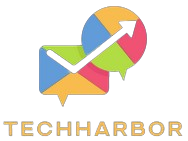Introduction
In today’s competitive job market, organizations are increasingly turning to technology to streamline their hiring processes. One of the most significant advancements in this field is the integration of Artificial Intelligence (AI) in talent acquisition. AI is reshaping how recruiters find, assess, and hire candidates, making the process more efficient and targeted.
Benefits of AI in Talent Acquisition
- Enhanced Candidate Sourcing: AI tools can scan numerous platforms and databases to identify potential candidates, saving time and resources for recruiters.
- Improved Screening Processes: AI can use algorithms to analyze resumes and applications, helping to filter out unsuitable candidates quickly.
- Bias Reduction: By relying on data-driven decisions, AI can help minimize unconscious biases that may affect hiring decisions.
- Candidate Engagement: AI chatbots can engage with candidates promptly, answer questions, and provide updates, enhancing the candidate experience.
- Data-Driven Insights: AI can provide analytical insights, statistics, and predictions about hiring trends that inform better strategic decisions.
Key Technologies in AI Talent Acquisition
1. Natural Language Processing (NLP)
NLP helps AI systems understand and interpret human language, making it easier to evaluate resumes and LinkedIn profiles by identifying relevant skills and experiences.
2. Machine Learning (ML)
ML algorithms learn from historical hiring data, allowing for continuous improvements in candidate selection processes and predicting future employee success rates.
3. Predictive Analytics
Predictive analytics can forecast the potential success of candidates based on numerous factors, leading to more informed hiring decisions.
Challenges of Implementing AI in Talent Acquisition
While AI offers numerous advantages, there are also challenges that organizations must overcome:
- Data Privacy Concerns: Handling vast amounts of personal data raises concerns about privacy and compliance with regulations such as GDPR.
- Quality of Data: AI systems rely heavily on the data fed into them; if the input is biased or flawed, it could lead to poor hiring decisions.
- Human Oversight: Despite AI’s capabilities, human involvement is crucial to ensure that the hiring process remains empathetic and comprehensive.
The Future of AI in Talent Acquisition
As technology continues to advance, the role of AI in talent acquisition will likely expand. Organizations that leverage AI are expected to see improved efficiencies in hiring processes, better candidate experiences, and ultimately a more diverse and qualified workforce.
Conclusion
AI is set to revolutionize talent acquisition by making recruitment processes faster, fairer, and more efficient. As companies navigate the balance between technology and human touch, embracing AI will be vital in attracting and retaining top talent in an ever-evolving job market.

